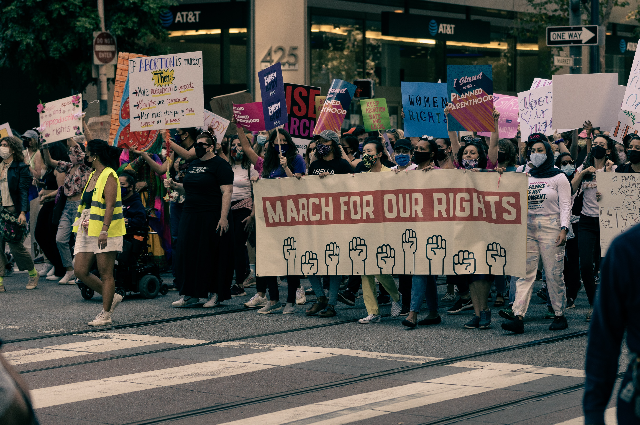
India is a federal country with the constitution being the highest and with its many salient features comes the democratic and equal opportunity for judicial review which makes the Supreme court and high courts, the epicenter of public life. Article 14 gives "the right of equality before the law" which ensures access to fair trials and justice barring any discrimination. There have been a significant number of legal cases in India which shaped our country's future and have been etched in public memory, The Mandal Commission and the Kesavananda Bharati case are the prime examples. But many landmark cases have been forgotten and ridiculed to naught memory in the country's consciousness. While many forgotten cases have exerted their influence for decades, Mathura's case is for what we start with.
TUKARAM vs STATE OF MAHARASHTRA:
Background- In an era where women were denied basic rights to such an extent that for acute crimes against them, women were only held accountable for decades, came a revolution that drove a reform wave throughout the country. In 1972, Gama, upset with her sister's marriage, lodged a police complaint at Desaiganj police station in Maharashtra and claimed her sister, Mathura, had been kidnapped by her husband, Ashok.
CRIME - 1972:
When called to the police station, Head Constable Baburao recorded statements and left for dinner. As those at the police station proceeded to leave, two constables - Ganpat and Tukaram, requested Mathura to wait inside the station and asked others to leave. When Mathura was alone inside, Ganpat took notorious advantage of the situation and sexually assaulted Mathura, and Tukaram also attempted but failed due to his intoxicated state.
When Mathura recounted and narrated the whole instance to her family, the whole crowd in front of the station agitated, Baburao was contacted to sort the matter. Matura eventually decided to file a complaint against the perpetrators. Mathura was examined nearly 24 hours after the incident with a "two-finger" test by a doctor. This test has been recognized as hideous and heinous, globally.
SESSION COURT JUDGMENT - 1974:
The judgment of the session court reaffirmed the beliefs of those many women who chose not to pursue proceedings against the assailants. "Ganpat and Tukaram were both acquitted".Mathura was termed as a 'shocking liar' as the judge failed to find any physical resistance and struggle marks. In the court's view, Mathura willingly engaged in sexual intercourse with Ganpat and she 'invented the story of rape' to ' sound virtuous.
BOMBAY HIGH COURT JUDGMENT - 1976:
Over four years had now elapsed since the incident at Desaiganj police station. In 1976, "high court finally convicted Ganpat of rape" and Tukaram of 'outraging the modesty of a woman' and sentenced them for terms of five years and one year respectively. While addressing the judgment, the crux of the statement remains the acknowledgment of the difference between 'consent' and 'passive submission'. However, the high court's judgment did not prevail for long.
SUPREME COURT PROCEEDINGS - 1978:
Ganpat and Tukaram appealed in the Supreme Court and in 1978, the Supreme Court rejected the high court's judgment and stated - As Mathura sustained no injury marks, hence what took place in the police station was a 'peaceful affair', and her story was 'all false'.
AGITATIONS INFUSED:
The mobilization of women’s groups in the aftermath of Mathura’s case was unprecedented. Wider awareness about the court’s decision and the injustice meted out to Mathura sparked protest not just from across the country but also in Pakistan where the injustice served to Mathura was published in their newspaper named “Dawn”. Street plays were performed, marches and demonstrations of karate and judo sessions were held and songs were sung on women’s liberation. A ten-point memorandum seeking ‘decisive and immediate actions on the case was demanded by Women and student organizations of Delhi.LAW COMMISSIONS' TAKE:
Although Supreme Court denied reconsidering the case in 1980, the Congress government came under severe public pressure which influenced the government to ask the Law Commission to study the law on rape and sexual assault of women. The Law Commission report suggested several far-reaching amendments to the law of which many recommendations were disregarded.
NEW LAWS IMPREGNATED:
The most significant recommendations made by the Law Commission were:
- Where a woman in police custody claimed that she did not consent the courts would now have to presume that she did not consent.
- It was now a criminal offense to disclose the identity of the rape victim without her consent.
WHAT HAPPENED TO MATHURA?
Justice didn't arrive for Mathura as she remained on the sidelines till the end. She was reported to have moved to a different village, remarried, and started a family. The Supreme Court, famously described as “the last resort for the oppressed” failed her.
